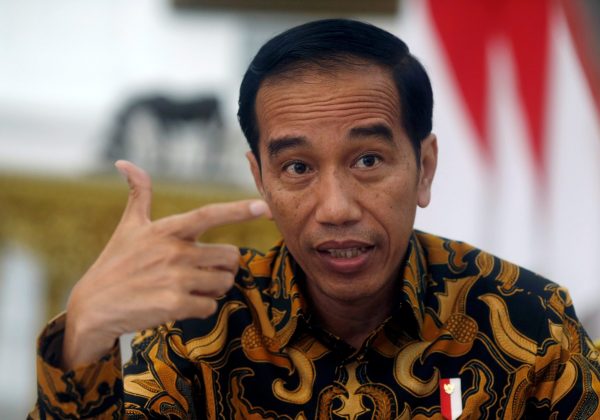Indonesia has not been exempt from these trends. The growing prominence of intolerant identity politics casts a shadow over the country’s democratic future. This was apparent in the ugly campaign to unseat former Jakarta governor Basuki Tjahaja Purnama (Ahok) in the gubernatorial election earlier this year.
The election ‘forced observers to rethink assumptions about how far outside the mainstream intolerant views really are’ in Indonesia. The governor’s subsequent jailing on widely-criticised blasphemy charges suggested that the systemic influence of intolerant groups was increasing.
Outside observers were not the only ones rattled. President Joko Widodo (or Jokowi) — as much an antagonist of Islamic conservatives as his ally Ahok — has come to see hardline Islam as a potential threat to his campaign for re-election in 2019. In recent months, his government has picked fights with prominent hardline Islamic figures and organisations, stretching legal powers that critics say undermine democratic rights.
In this week’s lead article, Gustav Brown suggests that the response to the perceived Islamist threat raises concerns of its own. Brown illustrates the risks involved in Jokowi’s pushback against radicals, highlighting charges of makar — treason or subversion — made against opponents of Jokowi’s government.
Ahead of the mass demonstrations that helped push Ahok out of office, some prominent hardline Islamic leaders were arrested and charged with makar. The use of makar laws has historical resonance for Indonesians. As Brown points out, ‘the Suharto regime … deployed allegations of makar to justify repressive measures taken against conservative Muslim and pro-democracy activists.’ But since the transition to democracy in 1998, governments have largely used them to pursue separatist activists — whom the security services see as bona fide enemies of the state.
What is worrying about the recent spate of makar charges, Brown says, is that they appear to be targeted not at anti-state groups, but at isolated critics of the Jokowi government. ‘The recent allegations’, he writes, ‘were notable precisely because they were so unusual’, possibly a reflection of ‘the charged political moment’ surrounding the Jakarta election. But the impression can’t be avoided that some figures are being prosecuted selectively; Brown notes that many Indonesians ‘interpreted the move as a message to Islamic hardliners’ from the presidential palace.
More recent moves by the government give weight to this interpretation. In July 2017 Jokowi signed a decree giving his government sweeping powers to ban organisations deemed to be anti-constitutional, or opposed to Indonesia’s official ideology of Pancasila. The immediate target of the new powers is the Indonesian branch of the transnational Islamist movement Hizb-ut-Tahrir. But human rights organisations — and Jokowi’s own domestic political opponents — have voiced alarm; the Jakarta Post branded the decree a ‘slippery slope’ toward abuse of power.
It is interesting that a president with Jokowi’s background has indulged the temptation to embrace these heavy-handed measures. Jokowi is unique among Indonesia’s post-Suharto presidents in that he came to national politics via the vibrant local democracy that emerged after 1998, becoming president following successful stints as mayor and governor. But as president, he has worked closely with many Suharto-era military and security officials, among whom authoritarian instincts remain strong. Jokowi’s decision making on law and security matters might benefit from engaging a broader pool of advisors.
Brown’s warning, and the broader political context ahead of the 2019 polls, cautions that it is a mistake to frame the fight for Indonesian democracy as fundamentally one between political Islam and secular pluralism. The real contest is between defenders of rule of law and constitutional checks and balances on the one hand, and authoritarianism — whether in its Islamist, secular-nationalist, or populist guises — on the other.
In the tense political climate in Indonesia, those checks and balances need all the allies they can get. The short term temptation to play hardball against political opponents — especially those promoting an intolerant strain of Islam — is understandable. But the Jokowi government should take seriously the potential long term effects on the rule of law, and the basic democratic rights of Indonesians.
Indonesia’s own history, not to mention that of other countries in the region, shows that unnecessarily harsh tactics are likely to be counterproductive. Radical Islamic groups have long fed off the narrative that secular democracies oppress them for their advocacy of what they see as ‘true’ Islamic principles. It is important that governments not fall into the trap of lending them vindication, even in the name of protecting democracy.
The EAF Editorial Board is comprised of Peter Drysdale, Shiro Armstrong, Ben Ascione, Amy King, Liam Gammon, Jillian Mowbray-Tsutsumi and Ben Hillman, and is located in the Crawford School of Public Policy in the ANU College of Asia and the Pacific.

